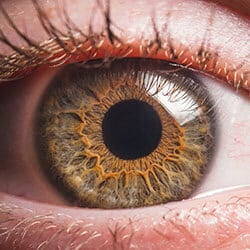What Should I Do About Glaucoma?
Glaucoma can seemingly come out of nowhere. Many people attribute it as a fact of aging and resign to leaving it at that. But, glaucoma can cause you significant issues if it’s left unchecked. Advances in technology and medicine have made treating glaucoma easier than in the past. Knowing the signs of glaucoma and how…
Read MoreWhen Floaters Cause Issues
Many people develop floaters as they age. Floaters are specks you may find in your eye. One of their characteristics is they move from place to place, sometimes making tracking them a challenge. While most floater cases are minor, some people can experience complications. For some people, floaters can lead to problems with vision and…
Read MoreWhat To Expect With A Cornea Transplant
Your cornea is an essential part of how your eye functions. When it’s compromised, it can affect how you see and disrupt your quality of life. An exam can determine the best treatment to help keep your cornea functioning and healthy. If your eye doctor recommends that you need a cornea transplant, here are a few…
Read MoreWhat Can I Do About Dry Eyes?
Dry eyes are no fun, and not having a solution can make things more frustrating. Identifying the causes of your dry eyes can help bring you one step closer to finding relief. Here are a few tips on what may be causing your dry eyes and how we can help treat them. Allergies and Dry Eyes…
Read More5 Myths Surrounding Cataract Surgery
After the age of 40, our eyes start changing. During this time, the proteins in our lenses begin to break down, causing cataracts. Although they’re commonplace, cataracts can be problematic if left untreated. Advances in surgical care have made cataract removal less invasive. But some misconceptions make people wary about cataract surgery. If you’re considering cataract…
Read MoreHow To Protect Your Eyes From The Summer Sun
Blog,Cataract Surgery,Eye Care Services,Lifestyle Lens Options
With Summer in full swing at last, more and more families have headed outside to spend time at the beach. Whether Nags Head, Cape Hatteras, or Wrightsville, North Carolina offers a plethora of beautiful oceanfront locations to take full advantage of the equally beautiful weather. While most beach visitors know to wear sunscreen to protect…
Read MoreWhy Wear Sunglasses? Cataracts And UV Exposure
By the time they are 65, more than 90 percent of Americans have developed cataracts. Deficits in the lens over the eye accumulate as humans age, clouding the vision. Many risk factors contribute to the development of cataracts. Family history can be an indicator of early cataract development, as well as past eye injuries. Other risk factors…
Read MoreCataracts
There are two nearly universal changes that occur with our eyes as we get older. When we pass our 40th birthday, presbyopia becomes almost standard. Presbyopia is the condition where the ciliary muscles that allow our eye to change shape to focus on near objects become less and less flexible. That’s why just about everyone in…
Read MoreSome Cataract Questions
A couple months back in our Cape Fear Cataract & Cornea blog, we provided a primer on cataracts. And why not? It’s estimated that 20 million people over the age of 40 in the U.S. have cataracts. Cataract surgery replacing the clouded natural lens with an artificial intraocular lens is one of the most common…
Read MoreCataract Surgery Without The Blade
Blog,Cataract Surgery,Laser Assisted Cataract Surgery
Cataract surgery has long been one of the most successful surgeries performed around the world, and technology continues to make it even better. We addressed one aspect of this in last September’s blog on premium intraocular lenses for cataract replacement. Another area is bladeless advanced laser cataract surgery. Dr. Groat offers this alternative option for cataract…
Read More











